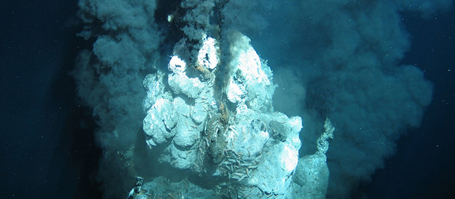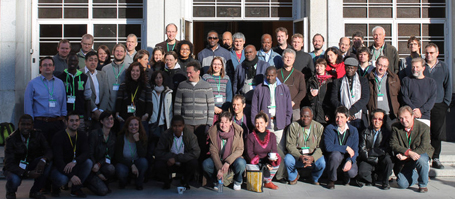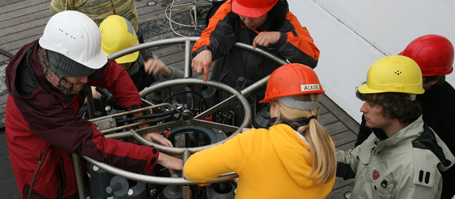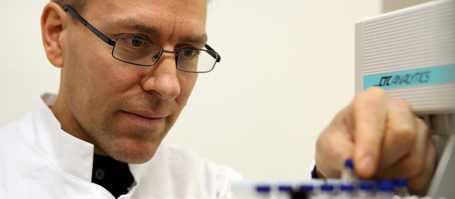It began at least 7,000 years ago. Back then humans began using tools made not only of stone but also of copper. Since then a culture without metals is unimaginable. This is also very true for the digital age. Whether smart phone, tablet computer or server – metals play a vital role. In addition there is a fast growing world population that needs not only mobiles but also houses, cars and refrigerators. The mineral raw materials required for these are mined almost exclusively on the continents. They, however, account for less than a third of the earth’s total surface. “With growing demand and rising prices, deposits in the remaining two thirds, the ocean, come to the attention of the industry,” explains the marine geologist Prof. Dr. Colin Devey from GEOMAR Helmholtz Centre for Ocean Research Kiel. Whether, when and under what circumstances deep sea mining will take place will be discussed by approximately 150 national and international students during the workshop “Seafloor Mineral Resources: scientific, environmental, and societal issues” in Kiel. Organizers of the workshop are the Cluster of Excellence “The Future Ocean” together with GEOMAR.
The focus of the current discussion particularly focuses on three types of mineral raw materials: manganese nodules usually found on the sea bed at 5,000 meters depth, cobalt crusts that form at the slopes of underwater mountain ranges at depths between 1,000 and 2,500 meters, as well as massive sulfides that develop in areas of volcanic activity along plate boundaries in the ocean between 500 and 5,000 meters depth. They all contain elements that are of particular importance for the high-tech industry such as cobalt, nickel, and copper. “As most of these deposits lie in the hardly explored deep sea and lie moreover in international waters, not only economic and technical aspects but also the civil aspects must be clarified before possible mining,” emphasizes Prof. Devey.
Therefore the workshop in Kiel aims to inform not only about the scientific fundamentals and technical developments in marine mining, but also about the legal conditions for mining licenses as well as the effects on biodiversity and habitat in the deep sea. Some of the most renowned deep sea geologists are traveling to Kiel, together with representatives of industry, specialists for deep sea biology and civil and marine law, representatives of different UN organizations and delegates from NGOs such as the World Wide Fund for Nature (WWF).
“The demand for information from industry but also from policy makers and science on the topic is very great. It is our goal to discuss a sustainable solution for environmentally responsible mining of resources together with all the stakeholders,” says Prof. Devey. “The scientifically based dialog is extremely important for us, before technology causes damage to nature and humans alike.”
Program links:
http://fileserver.futureocean.org/forschung/r3/semesterthema_resources.pdf
https://www.futureocean.org/resources
Contact:
Prof. Dr. Colin Devey (GEOMAR, FB4-Magmatic und Hydrothermal Systems)
cdevey@geomar.de
Friederike Balzereit, Public Outreach, Cluster of Excellence „Future Ocean“, (+49) 431-880-3032
fbalzereit@uv.uni-kiel.de
Jan Steffen (GEOMAR, Communication & Media), Tel.: (+49) 431 600-2811
jsteffen@geomar.de
…



